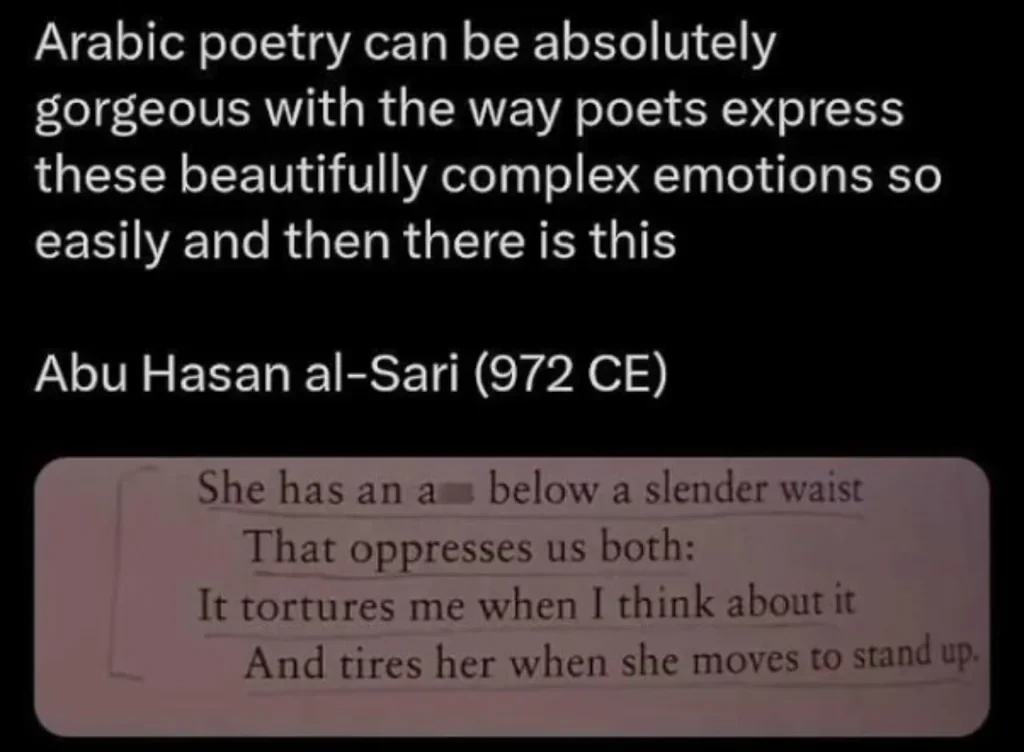this post was submitted on 12 Nov 2025
271 points (100.0% liked)
History Memes
1132 readers
587 users here now
A place to share history memes!
Rules:
-
No sexism, racism, homophobia, transphobia, assorted bigotry, etc.
-
No fascism (including tankies/red fash), atrocity denial or apologia, etc.
-
Tag NSFW pics as NSFW.
-
Follow all Piefed.social rules.
Banner courtesy of @setsneedtofeed@lemmy.world
OTHER COMMS IN THE HISTORYVERSE:
- !historymusic@quokk.au
- !historygallery@quokk.au
- !historymemes@piefed.social
- !historyruins@piefed.social
- !historyart@piefed.social
- !historyartifacts@piefed.social
- !historyphotos@piefed.social
founded 6 months ago
MODERATORS
you are viewing a single comment's thread
view the rest of the comments
view the rest of the comments

Sure, rhythm, structure, even how the words are being printed on a page are used as poetic elements in modern poetry. Often, pure sound is used, meaningless, fictional words, decomposed elements of a given language, syllables.
But modern poetry has moved away from long standing, fixed rhyme schemes and meter. This, along with the use of anachrononistic language, gives the translation a dated feel. I'm aware of the age of the poem, but I don't feel the ultimate goal of a translation must always be perfect accuracy to the source material and its historical context. In fact, poetry often suffers from such endeavors.
I agree with most of your points, but not the last one. I think it's perfectly OK to take an ancient work of poetry and produce a modern adaptation. This happens for many, many texts - where you can choose between a modern version that is easier to read and more "engaging" and relatable, or a more classical version where the translator tries to maintain the original nuance, structure, rhythm.
I don't know Arabic at all so I can't tell for sure, but the translation in the book just seems like a very poor attempt at translation, and so it fails as a modern adaptation, and fails as a "classical" translation. It's just bad. :)